The UK driving theory test is divided into 14 categories. Within these categories, many questions will be asked about UK road signs and their meaning. These topics cover category section 11 for theory test study.
This section offers a comprehensive guide to the majority of UK road signs including order signs, warning signs, blue signs, motorway signs, dual carriageway signs and various other signs, all of which will be referenced on the theory test.
Road sign pictures are complete with a full explanation of their meanings. Once you feel confident in your ability in recognising the various UK road signs and their meanings, a road signs theory test quiz is available to test your knowledge with 45 questions.
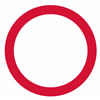
Order road signs
Circular road signs give motorists orders and must be followed to stay within the law. The majority of regulation signs are circular with an outer red ring. This section provides photos of UK regulatory order signs along with their meanings.
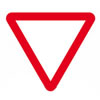
Warning road signs
Equilateral triangle road signs provide UK motorists with warnings of any hazards in the road ahead. The triangular road signs have an outer red boundary margin in the same way as the order road signs. Detailed are images and meanings of the UK warning signs.
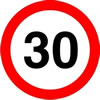
Speed limit signs
Speed limits are put in place to save lives. It goes without saying that they driving theory test involves plenty of questions regarding speeding and speed limit signs.
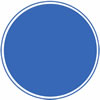
Blue road signs
Blue road signs provide road users and pedestrians with a wide range of information. Provided are images of circular blue signs that provide mandatory or positive instruction, and rectangular signs that offer information to motorists. Along with pictures of the signs, an explanation is provided to help learner drivers pass the theory test.
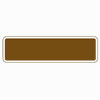
Brown road signs
For the theory test, this section covers brown road signs, what brown road signs mean, what they are used for, plus pictures along with their explanation. Frequently used brown road sign symbols and meanings also covered.
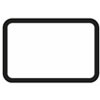
White road signs
White road signs are used either on their own as directional signs for non-primary roads, or to accompany other signs. this guide explains where and why white road signs are used and with what other types of signs.
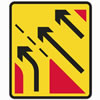
Road works and temporary yellow signs
This guide illustrates the various road works signs and temporary yellow signs that may be located on single carriageway, dual carriageway and motorways.
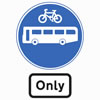
Bus lane signs and bus stops
This section covers the various bus lane / route signs and road markings, plus bus stop road markings that you are likely to encounter during the theory test and whilst learning to drive. For bus lane road markings, see also Bus lane road markings. For contraflow bus lane understanding and contraflows at road works, see Contraflow systems and bus lanes.
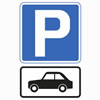
Parking and no parking road signs
The UK theory test asks questions on road signs, some of these questions will include signs that allow you to park and those that don’t. This section covers the various types of parking road signs, but also covered are signs that prohibit parking, waiting or stopping.
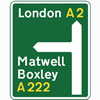
Direction signs
Direction road signs come in different colours based on their location. See the guide to direction road signs for non-primary routes and primary routes for the theory test.
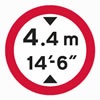
Low bridge signs
Low bridge signs or height restriction signs can either come as a warning or as a mandatory order sign and can be incorporated into other signs. The various height restriction signs are likely to feature on the theory test.



Road signs test quiz
Once you have studied all the various UK road signs, take a go at the road signs theory test quiz. The road sign test is designed to show you the answer right away to enable you to learn whilst testing yourself.

Than you for Great tips and lessons
not really many answers, brown road signs had to google myself.
Hello Amy,
There is information on the brown road signs page.